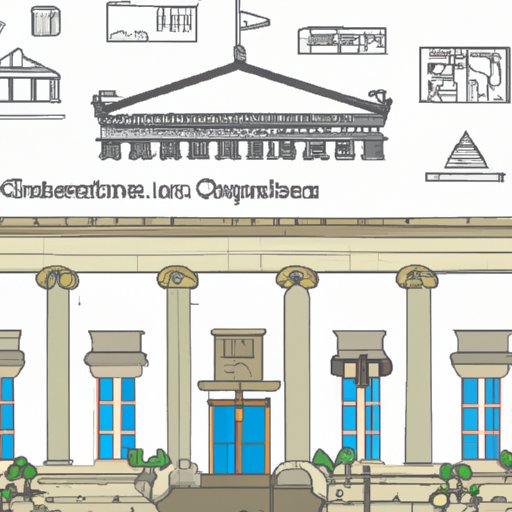Introduction
College is an important part of our lives, and it’s something that many of us take for granted. But when was college invented and what does it mean today? In this article, we’ll explore the history of college and higher education, tracing its roots back to Ancient Greece and charting its evolution through the centuries. We’ll examine how it has been shaped by religion, philosophy, and technology, and consider its importance in society today.
A Historical Look at the Invention of College
The idea of college is a relatively recent invention, but the concept of higher education has been around for thousands of years. In ancient societies, the focus was on practical skills such as farming, hunting, and warfare. However, there were also schools dedicated to teaching literature, mathematics, and philosophy. In Ancient Greece, these schools were known as academies, and they were the precursors to modern colleges and universities.
In the Middle Ages, universities began to emerge in Europe, providing students with access to a more formalized system of learning. These universities focused primarily on theology and law, and their primary purpose was to train clergy and lawyers. While these universities provided a more structured approach to education, they still lacked the breadth and depth of knowledge found in modern colleges.
By the 18th century, the modern college system had begun to emerge. This system was based on the liberal arts curriculum developed by the ancient Greeks, and it focused on teaching a broad range of subjects including mathematics, science, literature, and philosophy. This system was further refined in the 19th century, with the emergence of professional schools and the growth of universities.

How and When College Education Began
The concept of higher education can be traced back to Ancient Greece. The philosopher Plato founded the Academy in Athens in 387 BC, which is widely regarded as the first institution of higher learning in the Western world. The Academy focused on teaching philosophy, mathematics, and the sciences. It was a major influence on the development of higher education in Europe, and it laid the foundations for the modern college system.
The spread of Christianity in Europe during the Middle Ages had a profound impact on the development of higher education. Monasteries and other religious institutions became centers of learning, and they helped to establish the idea of a university. The earliest universities were focused on theology and law, and they served as the model for the modern university system.
The Renaissance also had a significant influence on the development of higher education. During this period, the emphasis shifted from theology and law to a broader range of subjects including the humanities, medicine, and engineering. This shift led to the emergence of the modern university system, which emphasized the importance of a liberal arts education.

Exploring the Origins of Higher Education
The modern university system emerged in the 19th century, with the establishment of professional schools such as law and medical schools. These schools offered specialized training in specific fields, and they helped to expand the scope of higher education. At the same time, the traditional liberal arts college also evolved, offering students a well-rounded education in a variety of subjects.
The 20th century saw the transformation of college education. Technology played an important role in this transformation, with the proliferation of computers, the internet, and other digital technologies. This allowed colleges to offer a wider range of courses and reach a larger audience. At the same time, the cost of college education increased dramatically, leading to increased access to financial aid and student loans.

Charting the Evolution of College Education
The history of college education is a long and complex one. From its roots in Ancient Greece to its evolution in the modern era, it has been shaped by religion, philosophy, and technology. Today, college education is more accessible than ever before, and it continues to play an important role in our society.
The growth of professional schools in the 19th century helped to expand the scope of college education. The transformation of college education in the 20th century was driven by technology, with the proliferation of computers and the internet. Today, technology continues to play an important role in college education, with online courses, distance learning, and virtual classrooms.
The history of college education is a testament to the power of knowledge and learning. From its roots in Ancient Greece to its evolution in the modern era, it has been shaped by religion, philosophy, and technology. It has opened up opportunities for millions of people, and it continues to be an important part of our society.
Conclusion
College has come a long way since its inception in Ancient Greece. Over the centuries, it has been shaped by religion, philosophy, and technology. Today, it is more accessible than ever before, and it continues to play an important role in our society. The history of college is a testament to the power of knowledge and learning, and it provides us with an insight into the evolution of higher education.
(Note: Is this article not meeting your expectations? Do you have knowledge or insights to share? Unlock new opportunities and expand your reach by joining our authors team. Click Registration to join us and share your expertise with our readers.)
